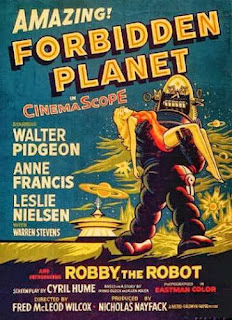"One summer day when I was about twelve, I complained to a friend that I couldn’t find anything interesting to read. My friend gave a little laugh and said, Come with me. Leading me to her garage, she flicked on the light, waited a moment for dramatic effect, and said, Pick.
I was in awe. One whole wall of the garage was covered by homemade bookshelves and those shelves were stuffed to overflowing with, what I would soon discover, were science fiction paperbacks.
'They’re my dad’s,' my friend said. 'He’s kind of a sci fi junkie. You can borrow anything you want.'"
—
Fork in My Eye
Read more...
"If there's one thing science fiction fans love, it's an argument. And if there's one argument they love more than all others, it's the attempt to define what science fiction actually is, and what is or isn't included in that definition.
David Barnett set fire to the dry tinder of the genre argument recently by declaring a preference for 'sci-fi' over the generally more respectable 'SF'? But, I hear the still sane among you declare, what does this even mean? And why should
you care?
For the ever growing army of writers, bloggers, editors, critics, academics and just plain old obsessive fans of this thing that may (or may not) be called sci-fi, there is at least some method in this madness. Each name and definition reveals a different aspect of the immense creativity sheltering within sci-fi. Or SF. Or whatever the hell it's called! So, here is a brief glossary of the various competing definitions of sci-fi. […]"
— Damien Walter,
The Guardian
Read more…






